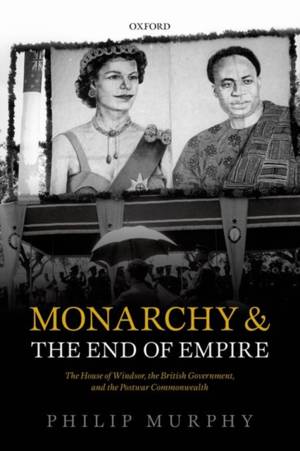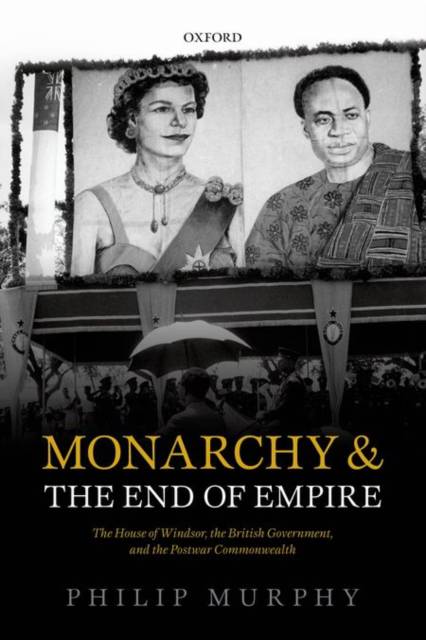
Bedankt voor het vertrouwen het afgelopen jaar! Om jou te bedanken bieden we GRATIS verzending (in België) aan op alles gedurende de hele maand januari.
- Afhalen na 1 uur in een winkel met voorraad
- In januari gratis thuislevering in België
- Ruim aanbod met 7 miljoen producten
Bedankt voor het vertrouwen het afgelopen jaar! Om jou te bedanken bieden we GRATIS verzending (in België) aan op alles gedurende de hele maand januari.
- Afhalen na 1 uur in een winkel met voorraad
- In januari gratis thuislevering in België
- Ruim aanbod met 7 miljoen producten
Zoeken
Monarchy and the End of Empire
The House of Windsor, the British Government, and the Postwar Commonwealth
Philip (Director, Director, Institute of Commonwealth Studies, L
Paperback
€ 69,95
+ 139 punten
Omschrijving
Examines the relationship between the British government, the Palace, and the modern Commonwealth since 1945 and argues that the monarchy's relationship with the Commonwealth, which was initially promoted by the UK as a means of strengthening imperial ties, increasingly became an impediment to British foreign policy.
Specificaties
Betrokkenen
- Auteur(s):
- Uitgeverij:
Inhoud
- Aantal bladzijden:
- 258
Eigenschappen
- Productcode (EAN):
- 9780198757696
- Verschijningsdatum:
- 12/11/2015
- Uitvoering:
- Paperback
- Afmetingen:
- 235 mm x 158 mm
- Gewicht:
- 420 g

Alleen bij Standaard Boekhandel
+ 139 punten op je klantenkaart van Standaard Boekhandel
Beoordelingen
We publiceren alleen reviews die voldoen aan de voorwaarden voor reviews. Bekijk onze voorwaarden voor reviews.









